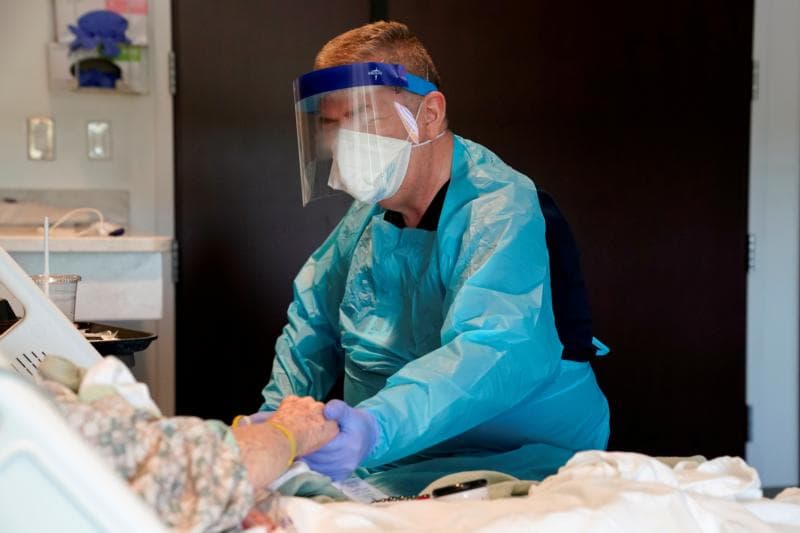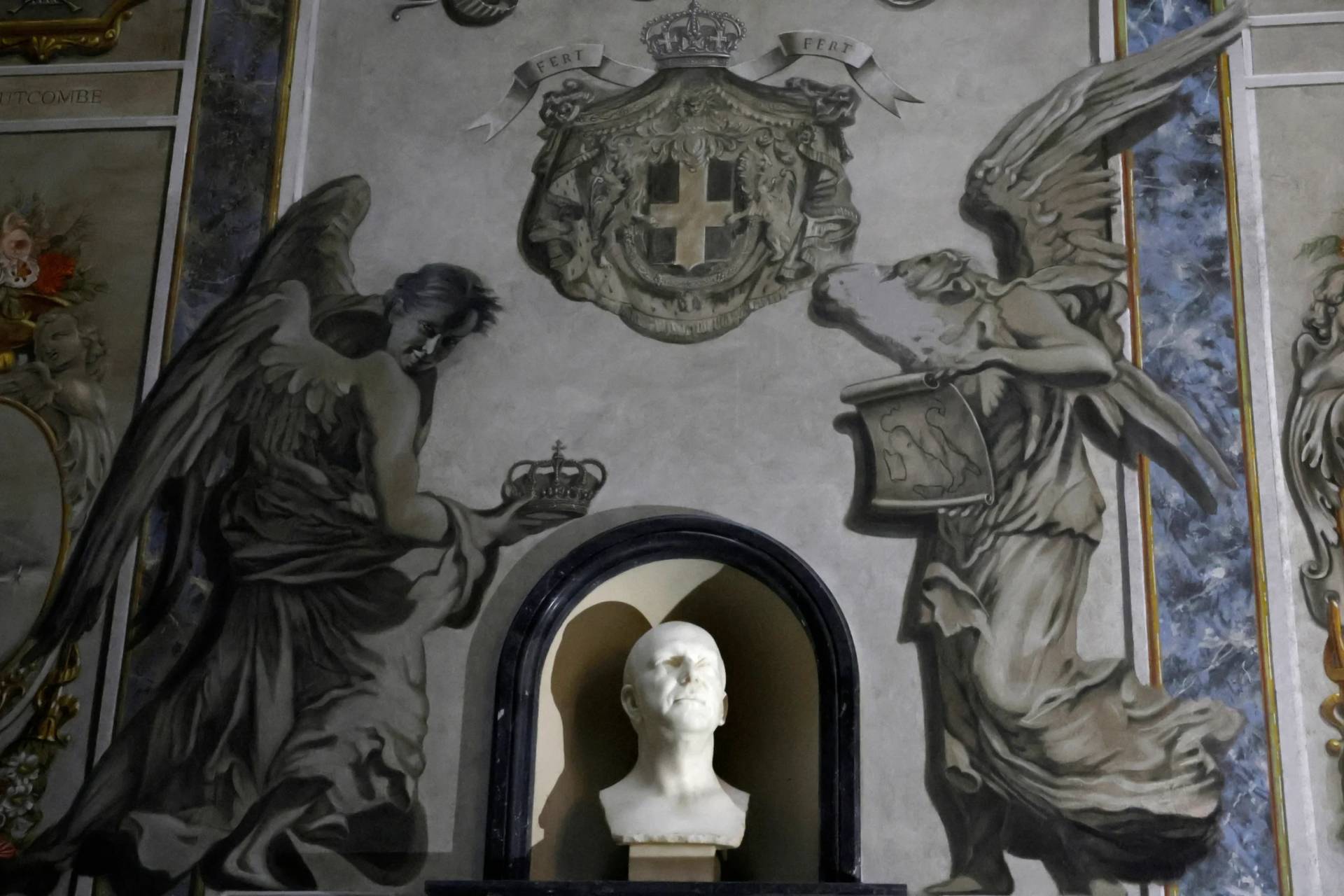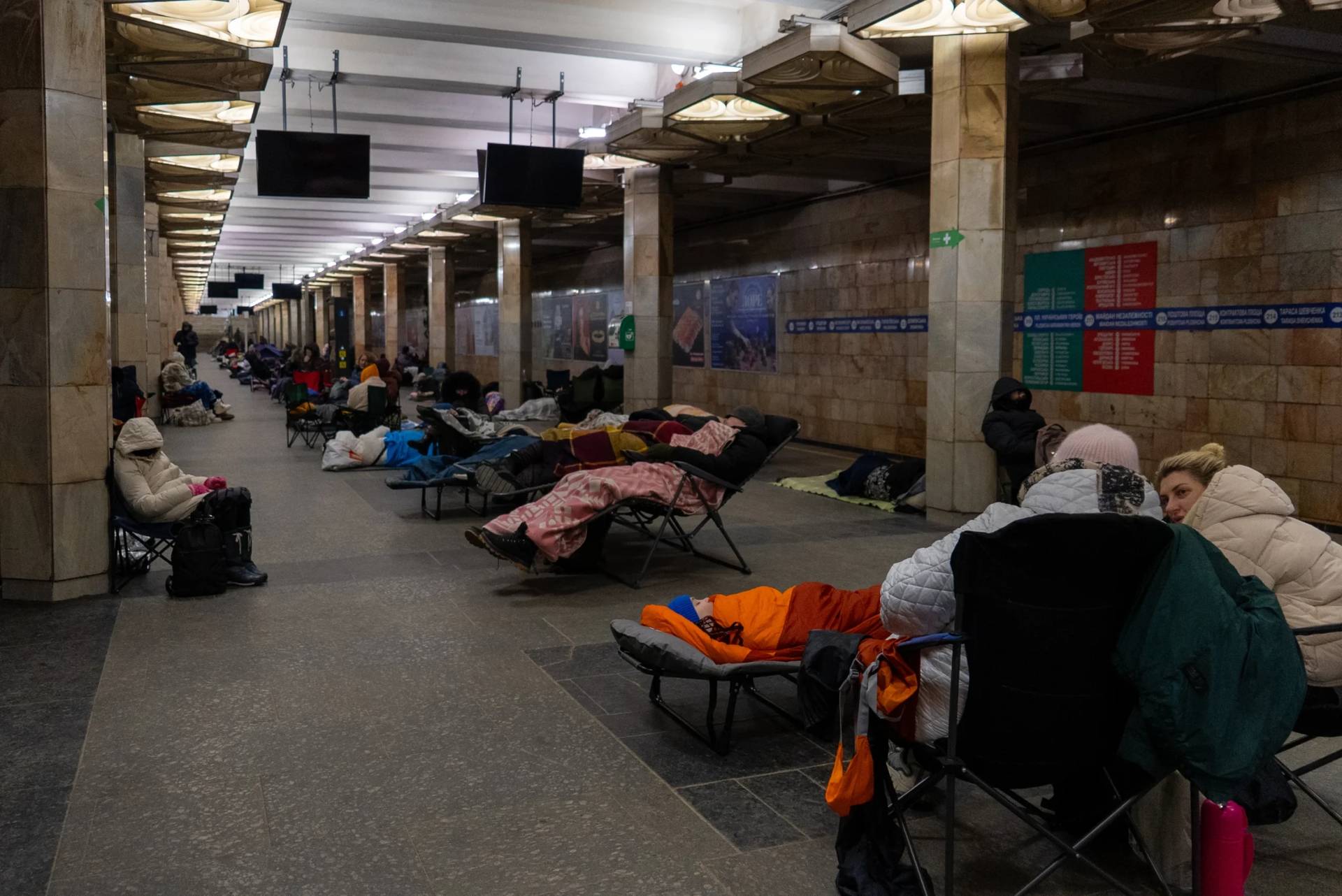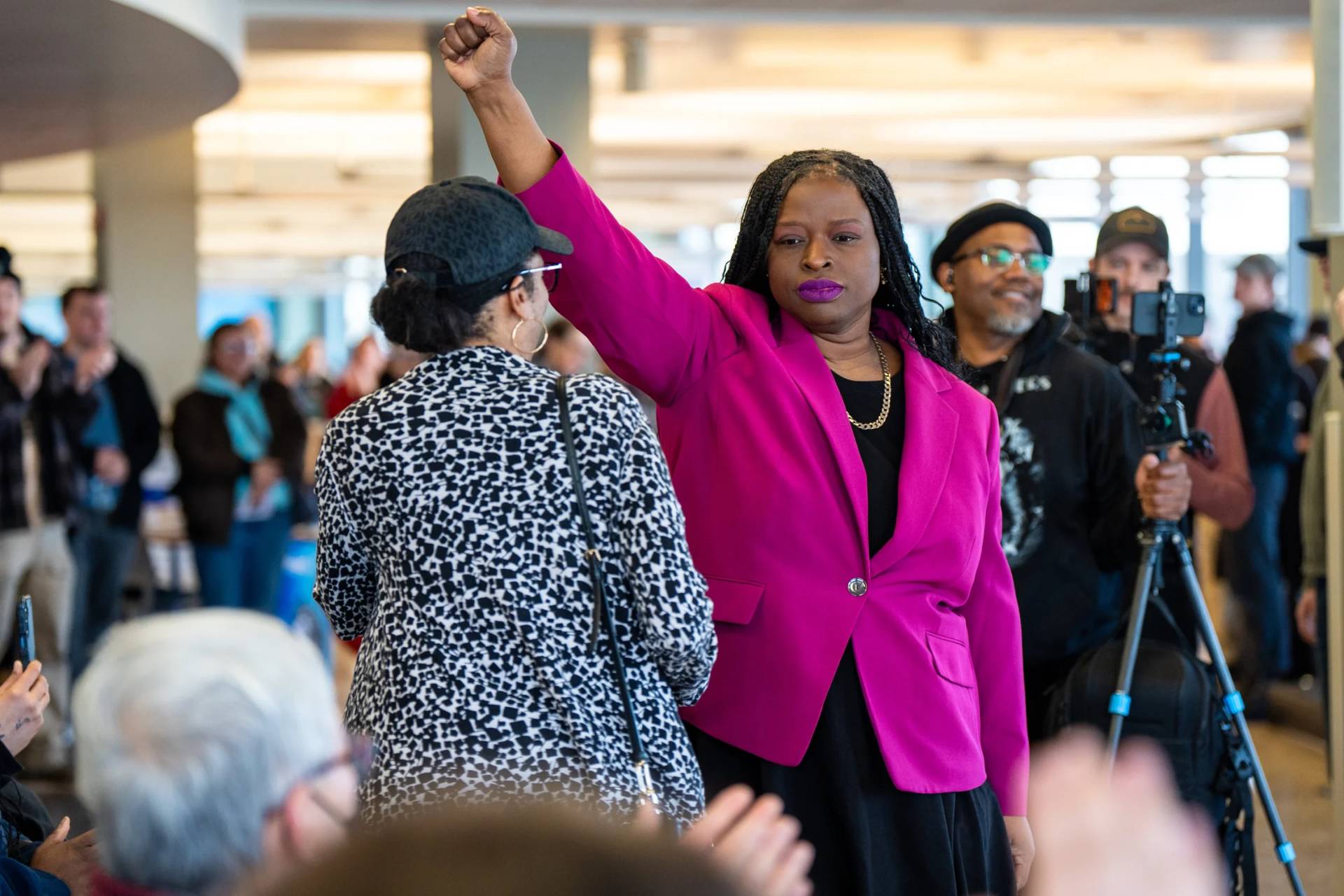LEWISTON, Maine — “It’s about being present to the human person in those moments of need when we come to experience how vulnerable we all are, and though I may not be able to do something to change the situation, I can still be with that person in need and offer what I have, my very presence to give comfort.”
The words of Dominican Father Benedict Faneye are echoed by the many Catholic chaplains — priests, religious and lay — serving at hospitals throughout the state of Maine.
These days, the job description has changed due to the historically stringent safety restrictions now in place at all hospitals due to the COVID-19 pandemic.
“The difference I see is that hospitals are almost empty as far as the normal patients are concerned,” said Father Anthanasius Wirsiy, a chaplain at Northern Light Mercy Hospital and Maine Medical Center in Portland. “There are hardly any visitors for patients.”
“The hospitals don’t want to take any chances in having COVID-19 brought in by a visitor and affecting the care they are offering,” said Father Paul Marquis, also a chaplain at Northern Light Mercy and Maine Medical Center. “The amount of family who can visit is extremely limited. The hallways are empty. The visitors’ area is empty.”
“I can’t hold someone’s hand who might be frightened. It feels very artificial to me, but I suppose this is the new normal,” said Mary Hazzard, a lay Catholic chaplain at Maine Medical Center.
“The presence of a chaplain helps bring comfort to patients in situations like this,” said Faneye, a chaplain at four facilities in Lewiston. “There was an older patient on comfort care I was visiting shortly before COVID-19 set in. Once all the restrictions of COVID-19 were put in place, the patient was by herself. I went in to visit her and all she did was to hold on to my hand and kept saying, ‘Thank you.’ I have been struggling with some of these and asking myself if and when people are going through an illness which could drastically change who they are, how do we support them?”
Even in extraordinary times, the answers chaplains find are beautiful in their simplicity.
“The human connection is powerful, it is spiritual, and it has a healing effect on our experiences as well,” he said.
Father Arokiasamy Santhiyagu, a priest of the Heralds of Good News order, serves as chaplain at MaineGeneral Hospital in Augusta. It is a ministry that Santhiyagu has always found rewarding, especially now.
“During this time of pandemic, to serve as a chaplain really gives me a good feeling and a satisfaction,” he said. “These days, patients in the hospital are feeling more isolated than ever before. They said that they are not able to see even their own family members and friends. Some patients have told me that chaplains’ visits and the chance to receive the sacraments means so much to them.”
Their visits elicit gratitude and create it in themselves in the process.
“I am so thankful to God for giving me such a wonderful ministry to meet the sick people and administer the sacraments, particularly in a time of social distancing,” he said.
Mercy Sister Anne-Marie Bourque serves as chaplain primarily at St. Mary’s d’Youville Pavilion, one of New England’s largest nursing homes, located in Lewiston. Attending to one of the most vulnerable populations has meant extensive precautions, universal masking, and no visitors.
“We reach out to all patients and residents encouraging them, praying with them, and referring to clergy when sacraments are requested,” she said. “Being separated from their families and not having the option to gather for meals in the dining room with others, some people say they are depressed. While we can’t change the reality of the situation, we try everything in our power to visit often and give a few moments of personal attention in the spirit of St. Marguerite d’Youville, whose motto was ‘To love and to serve.'”
“It is wonderful because you feel happy when you are able to give consolation to people who are reeling, people who have been sick,” said Wirsiy. “They are going through suffering, and when you talk with them, they are happier. I think that is what is really fulfilling in the ministry. Then, the difficult part is standing to see people suffering, seeing people dying, and seeing the family grieving for them. You are going there, and you don’t know what you are going to go and say, but by the time you are leaving, you realize that something happened to a patient, and the patient is kind of happy. I think God is giving us the graces to do that.”
On the West Coast, Deacon George Baghdassarian is a chaplain in the the emergency department at Cedars-Sinai Hospital in Los Angeles. Keeping isolated patients’ spirits up has been a priority. So every day, he makes a point to speak on the phone with as many patients as possible.
And through his visits with patients, he has found that what makes them the most anxious and scared is the loneliness because visitors are strictly curtailed during the COVID-19 pandemic.
“What’s more frightening is the isolation,” Baghdassarian told Cedars-Sinai in an April 22 press release. “I’ve really been wanting to contact patients and speak to them, just to make sure that I’m speaking with them over the phone,” he said.
He shared in his video diary that he doesn’t feel like there are easy answers to the questions patients are asking right now, but that he offers guidance and prayer.
“It’s a big wake-up call. It’s like, what are your priorities in life?” the deacon said, adding: “I feel like God’s got my attention.”
Guthro, communications director for the Portland Diocese, writes for Harvest, the bimonthly diocesan magazine.















